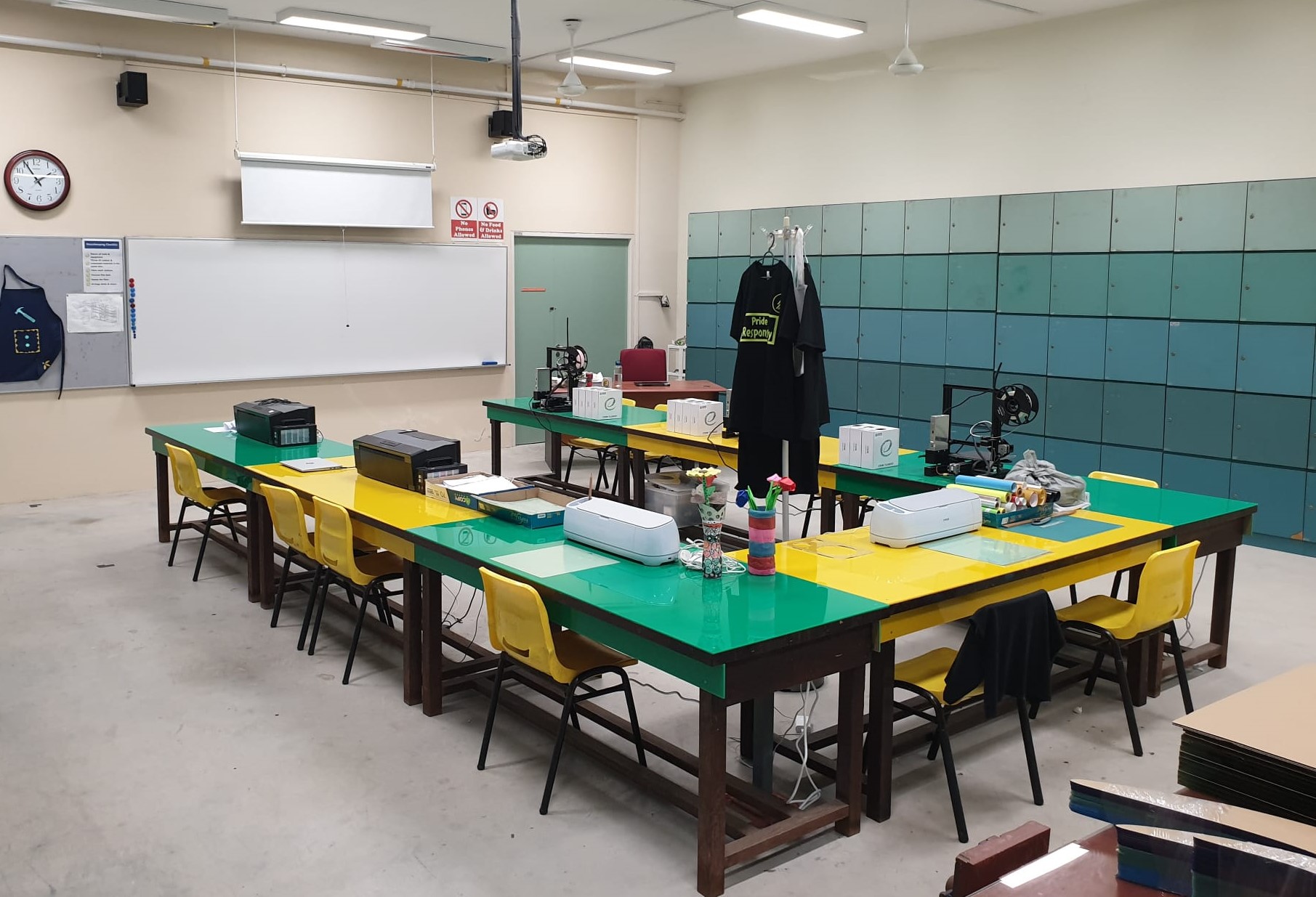Craft & Technology
Programme
-
The Design & Technology (DT) Unit adopts the DT T&L Framework based on the MOE Syllabus document. The unit aims to instill the design-thinking culture in our students, where empathy, being inquisitive, sketching, critical and creative thinking skills are emphasized in our instructional programme.
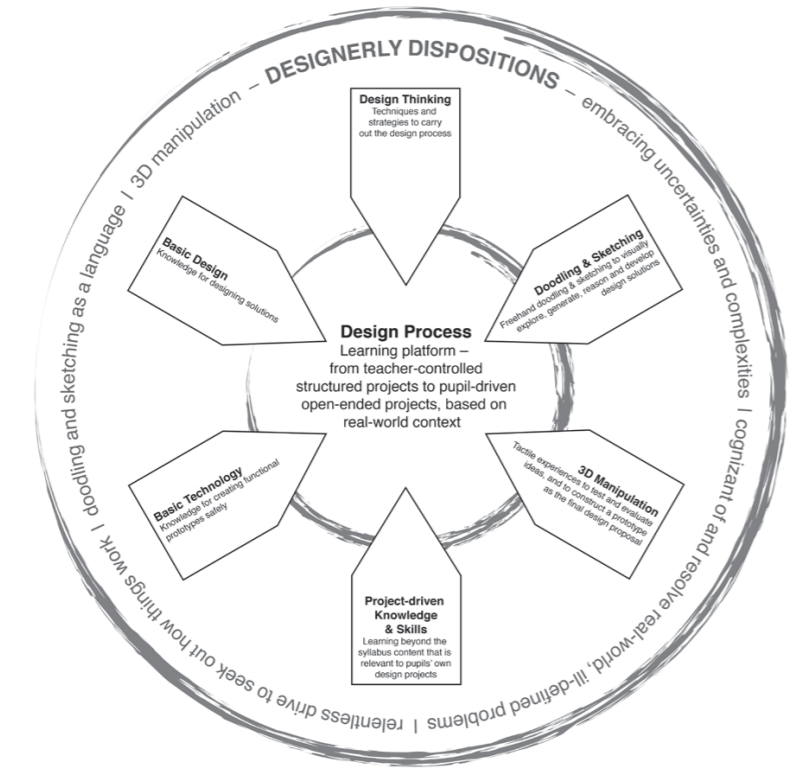
Source: MOE Syllabus document
The DT Unit uses the Design Process Model as a thinking routine and vehicle for designing to create change so as to affect empathy, practicality and appropriateness in everyday life.

Source: MOE Syllabus document
Research and Needs Analysis
Research and investigate to seek real world problems for designing of solutions to meet target users’ needs.
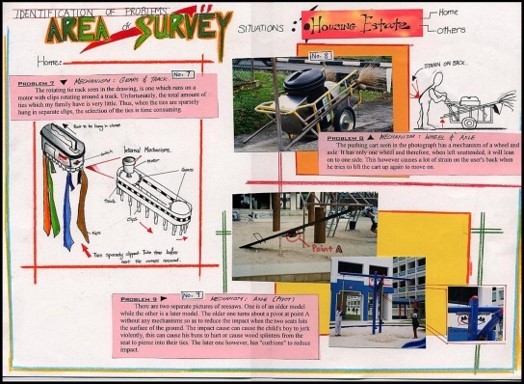 Idea Conceptualization and Development>
Idea Conceptualization and Development>
Use sketching, doodling and any other graphical means to generate, explore, communicate and develop creative and innovative solutions.
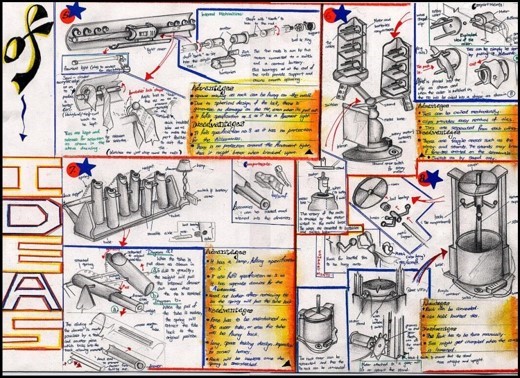
Prototyping
Learn design manipulating skills to build mock-up models with model making materials and prototype using resistant materials. There is also the opportunity for students to test and evaluate proposed solutions for improvements.
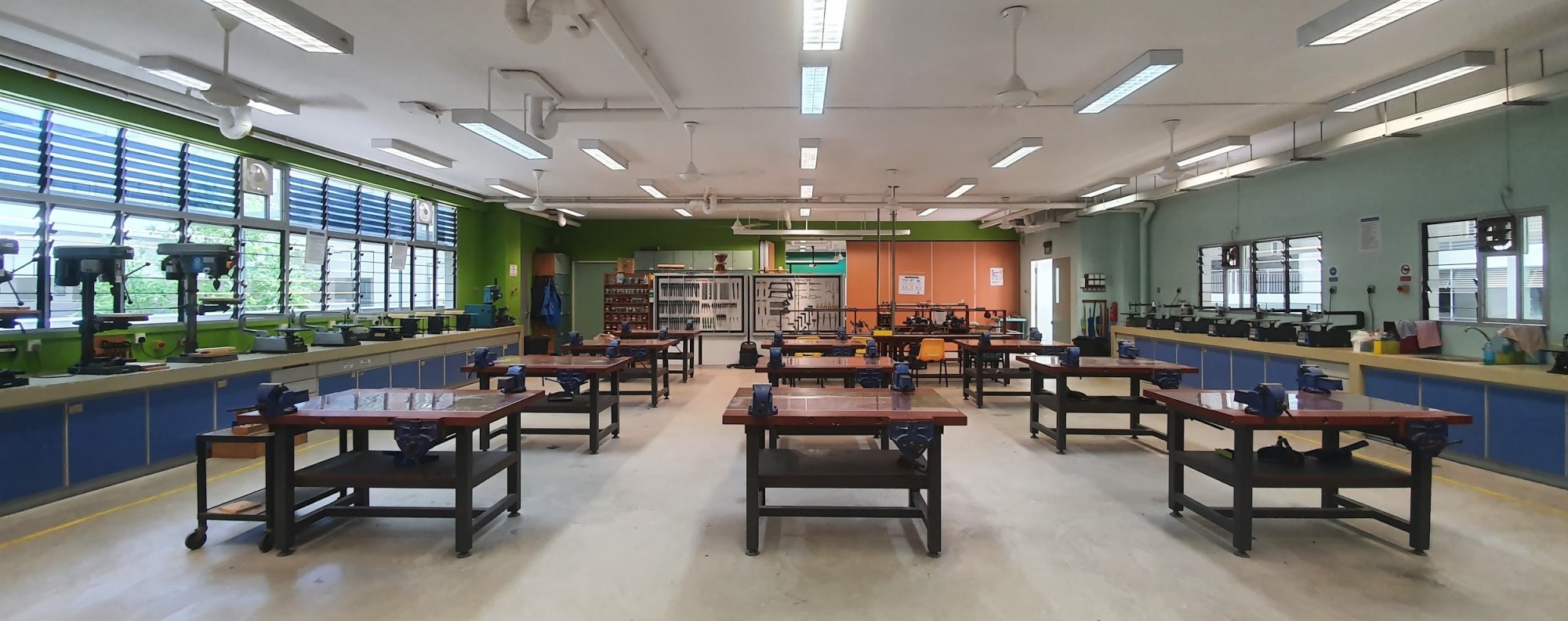
Signature Program - Makers’ Education
Since 2019, the D&T Unit has begun to shift in tandem with the national initiative towards “digital”. As part of the shift, the department has acquired some prototyping capability such as laser cutting equipment, heat press machines, 3D printers and plotter machines. This will “empower” the D&T Unit to gradually incorporate “Makers’ Education” as part of the department’s added focus to expose the students to experiment, prototype and test out their ideas. Such opportunities will allow our students to experience a “real life” approach in problem solving as the students are able to “transform” their proposed ideas from sketches/drawings to actual real life application and or implementation.

Extended Learning
-Participation in Design Thinking and Innovation Boot Camp organized by Nanyang Polytechnic for Secondary 3 D&T students.
- Participation in Singapore Amazing Flying Machine Competition by Singapore Science Centre
- Participation in Design Thinking Challenge for Lower Secondary students (in 2019 and 2021). 2020 edition was canceled due to Covid-19.
Highlights Photo Set A: Exposure to Mobile App writing, CAD software, and receiving mentorship from SUTD students and J.P Morgan staff (The School’s Challenge – Live Smart @ The East Competition in 2019). 2020 Edition was canceled due to Covid-19.

Highlights Photo Set B: Applying block programming knowledge in an authentic context (Digital Making National Infocomm Challenge (2019)
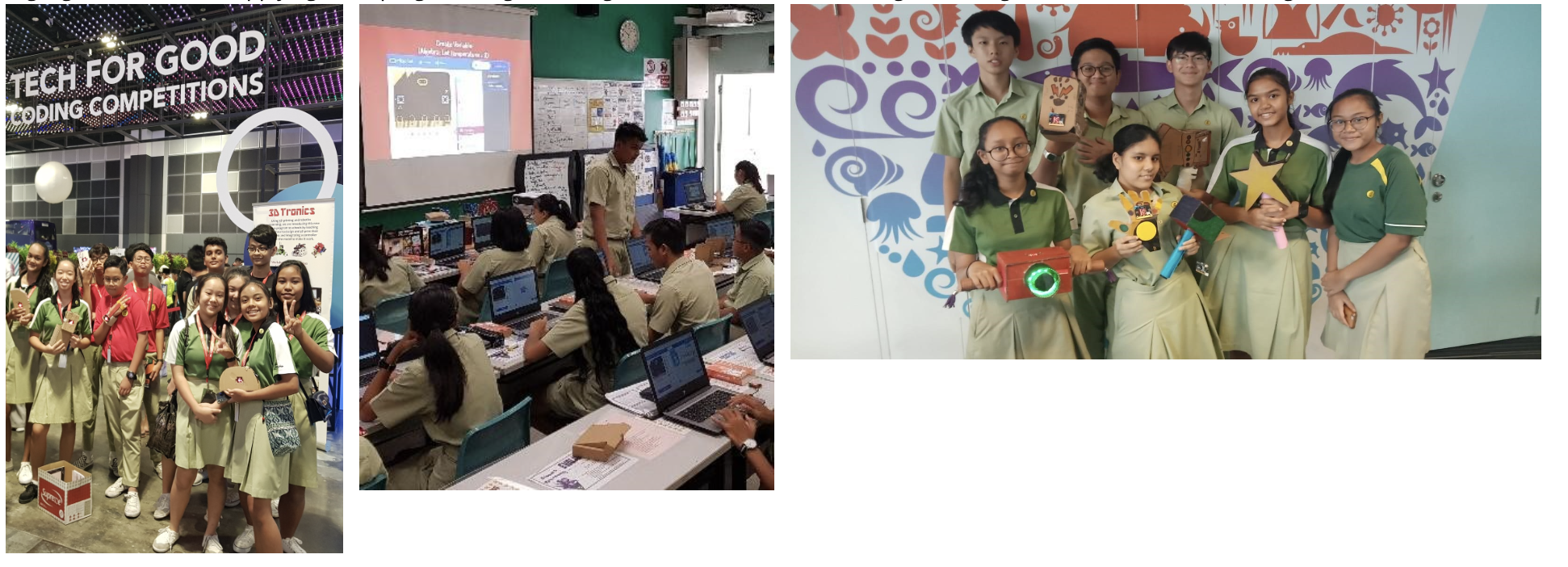
Highlights Photo Set C: Applying design thinking to discover and analyse real world issues as well as prototyping solutions (PRSS Design Thinking Challenge (2019).
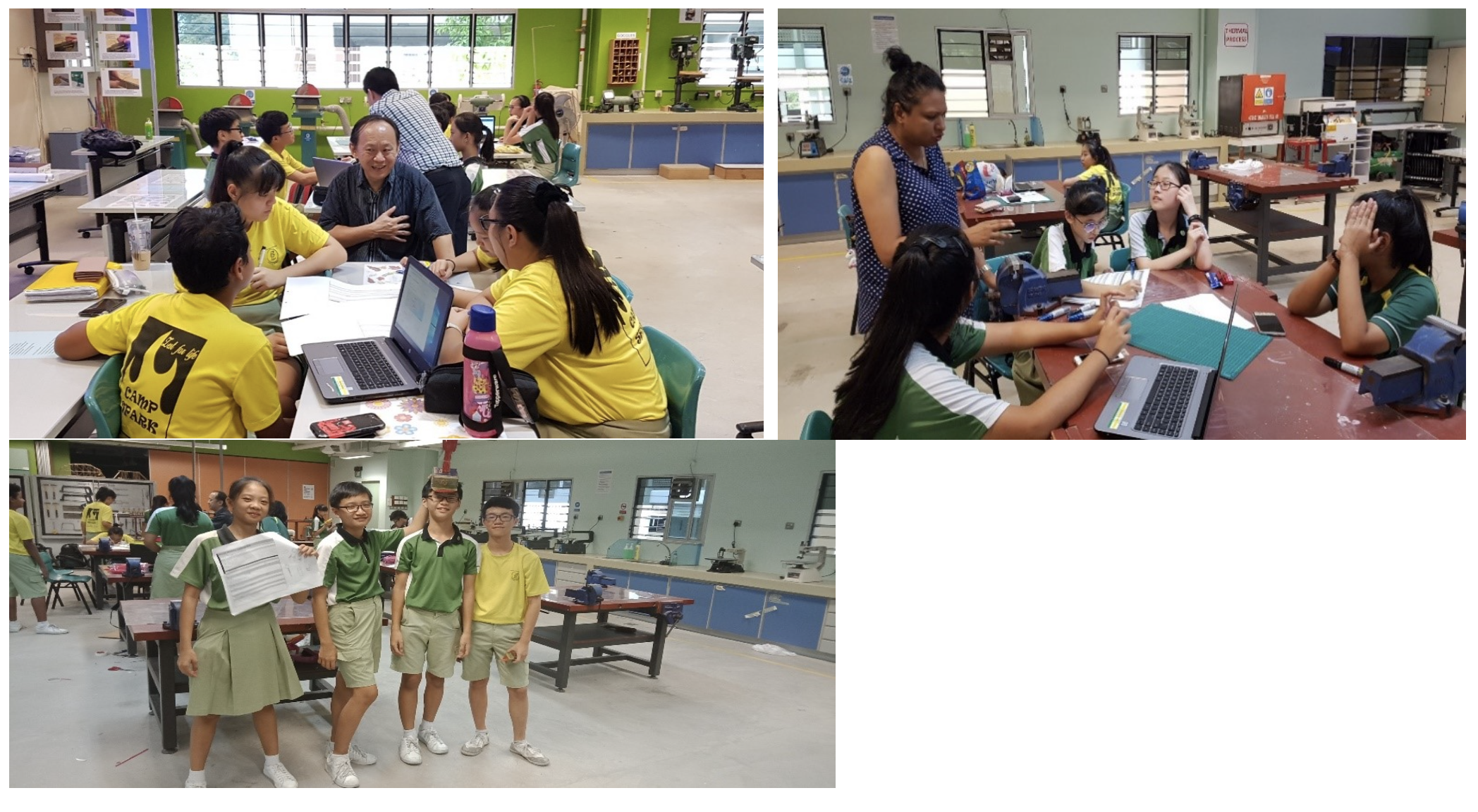
-
The Art Unit adopts the Art Framework based on the MOE Syllabus document for the lower secondary Art programs The unit aims to build students’ capacity to enjoy art, express themselves, communicate, learn about and connect with the community and wider world in and through art.

Key Art Programmes for Secondary 1 - 3
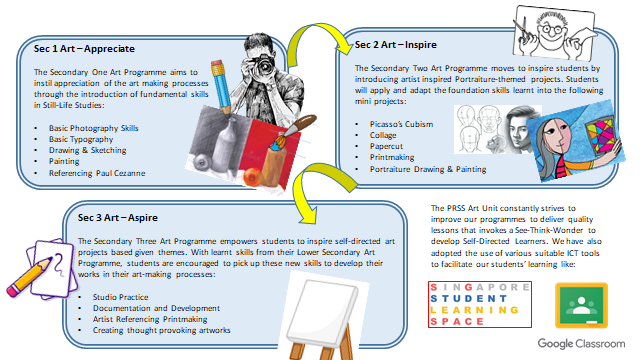
Extended Learning
Highlights Photo Set A: Still Life object photography before painting
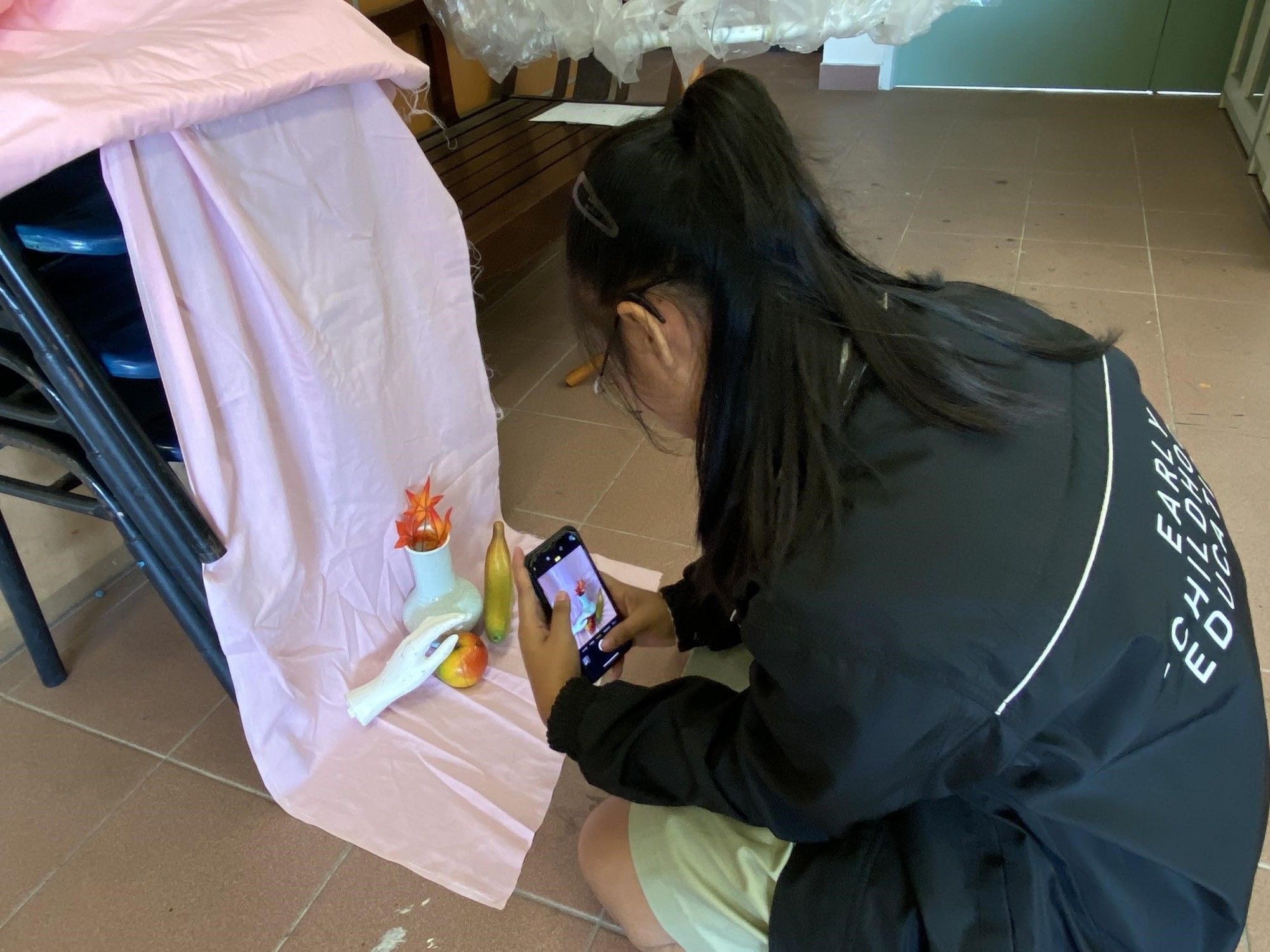
Highlights Photo Set B: Launching of the Art Installation Showcase @Level 2 during the 35th Anniversary celebrations (12 Mar 2021)
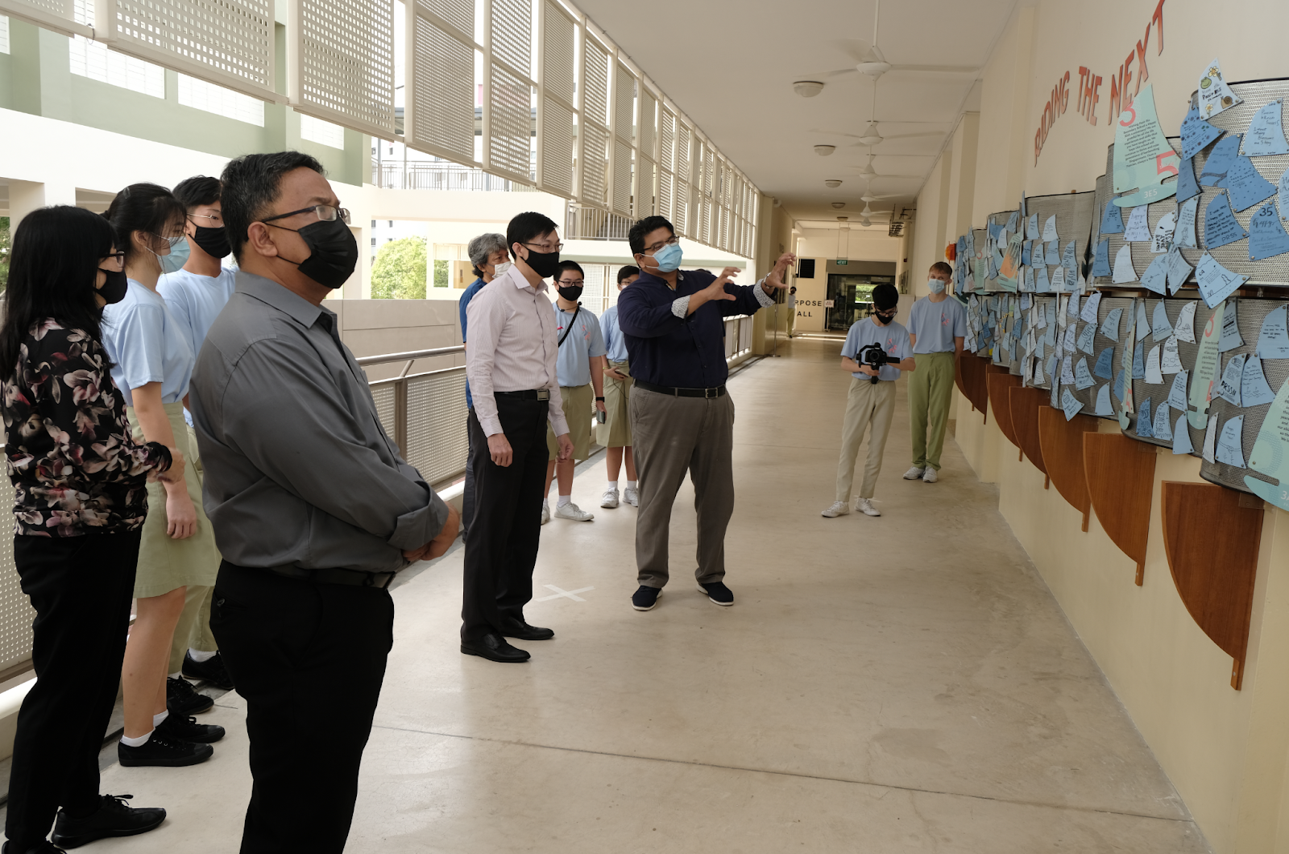
Highlights Photo Set C: Student’s Portraiture Showcase @Le Visage Gallery – Level 3
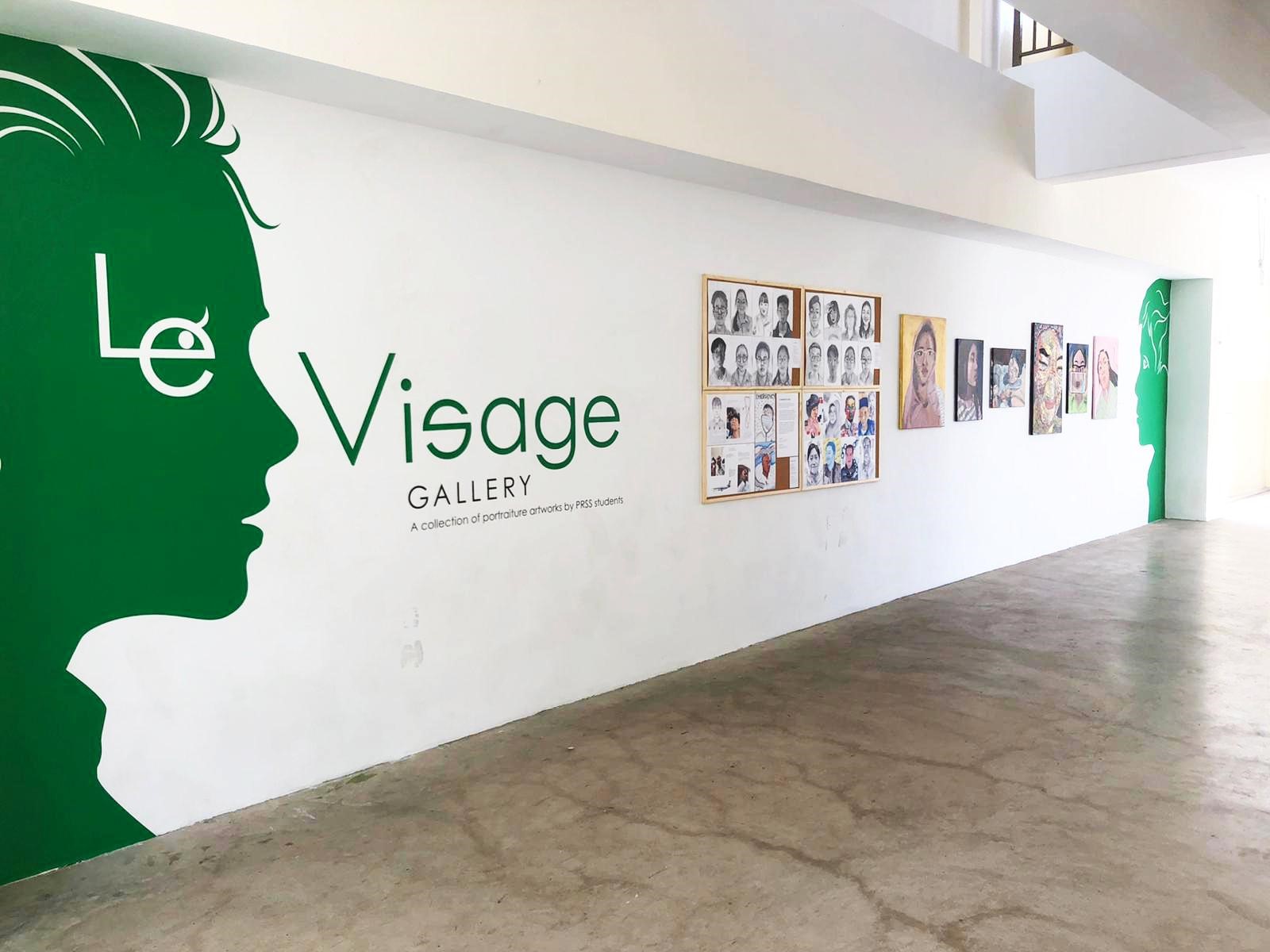
Highlights Photo Set D: Student’s master pieces @The Sculpture Park – Level 4
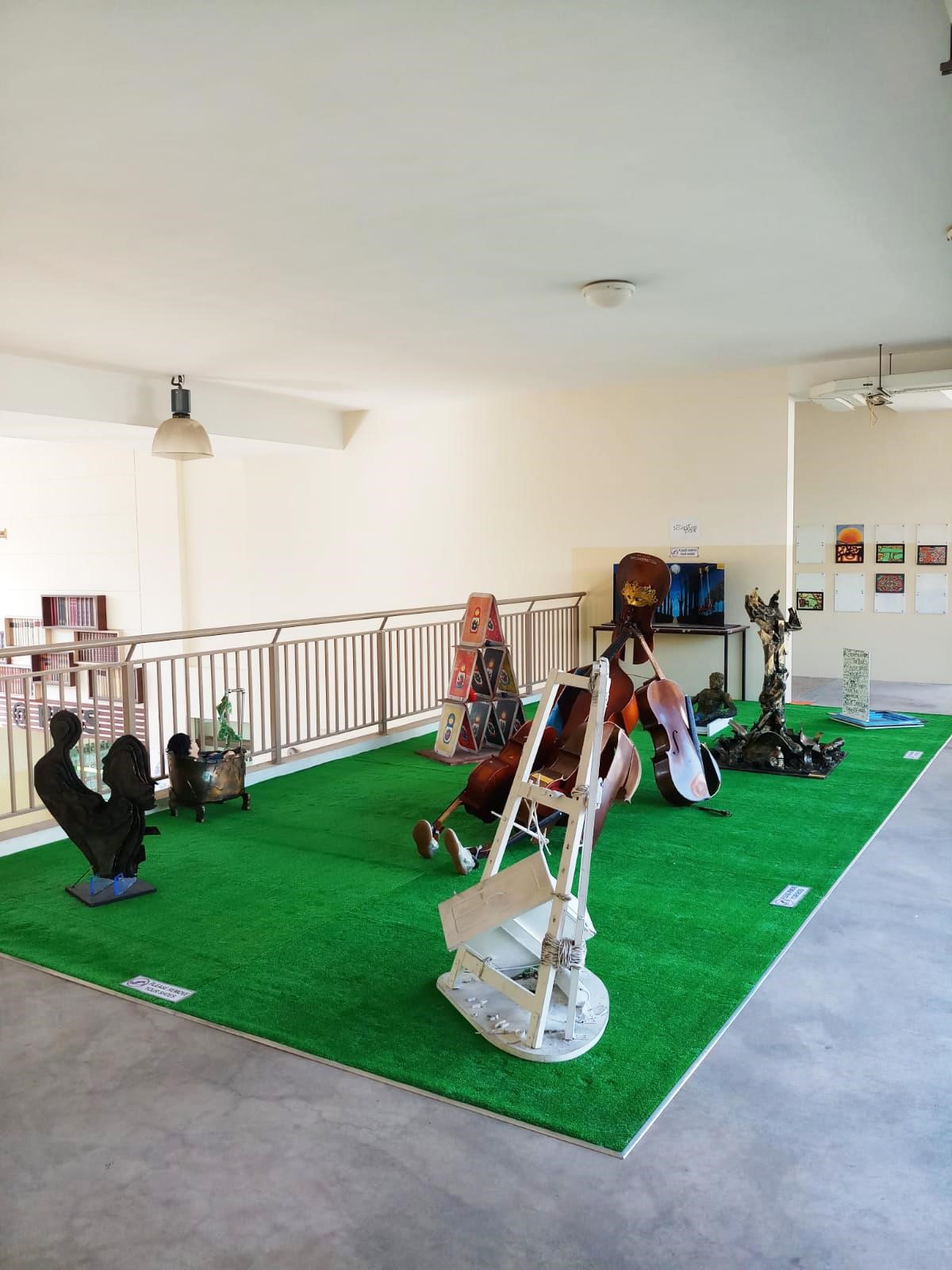
Highlights Photo Set E: Secondary 2 student working on her printmaking template
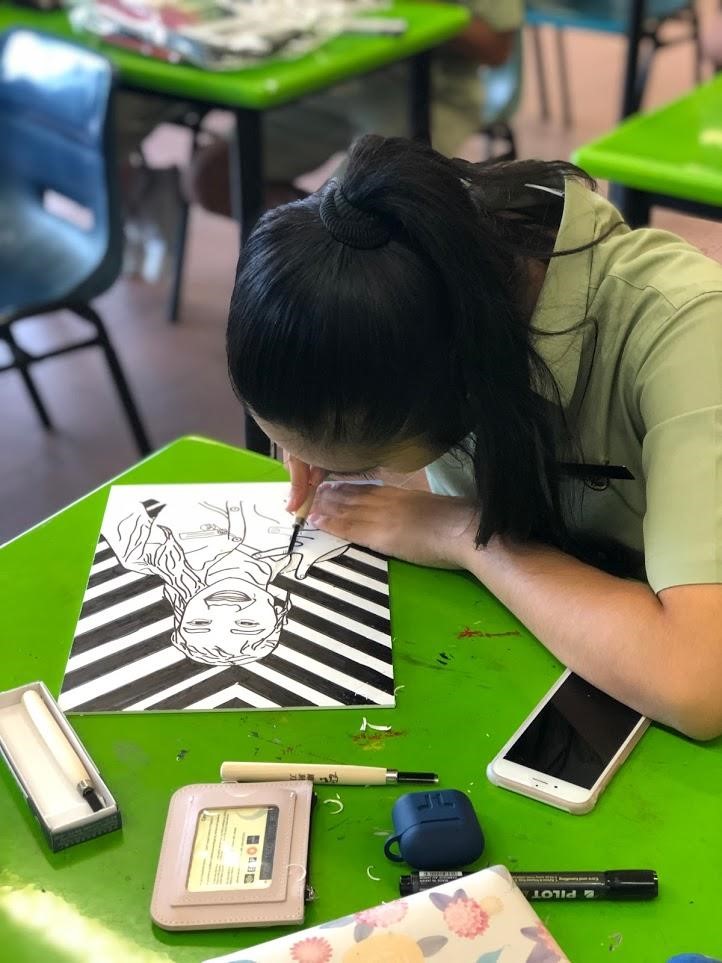
Highlights Photo Set F: A group of 3NA Art on the learning journey to 2020 NAFA Open House event to get inspiration

Highlights Photo Set G: Art jamming @NAFA’s Skylight Studio. Can you spot Mr. Rahman’s drawing?
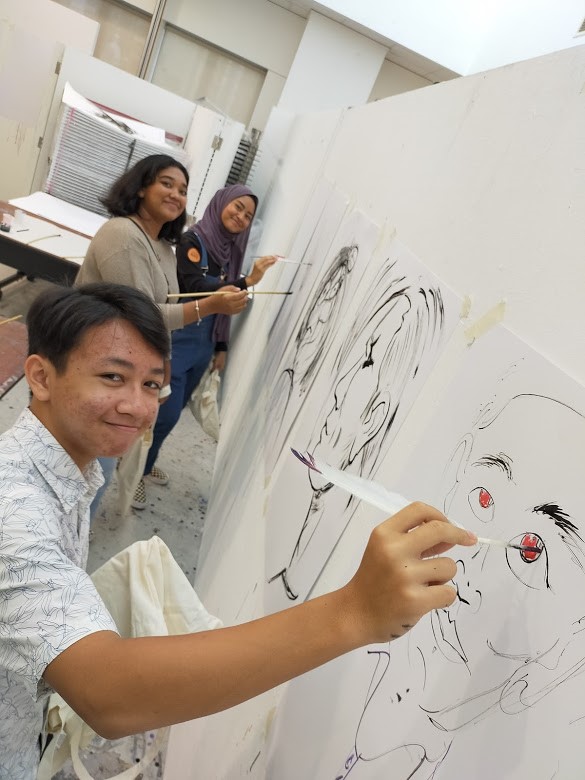
Highlights Photo Set H: 3A1 budding artists have a go at canvas painting during their studio practice.
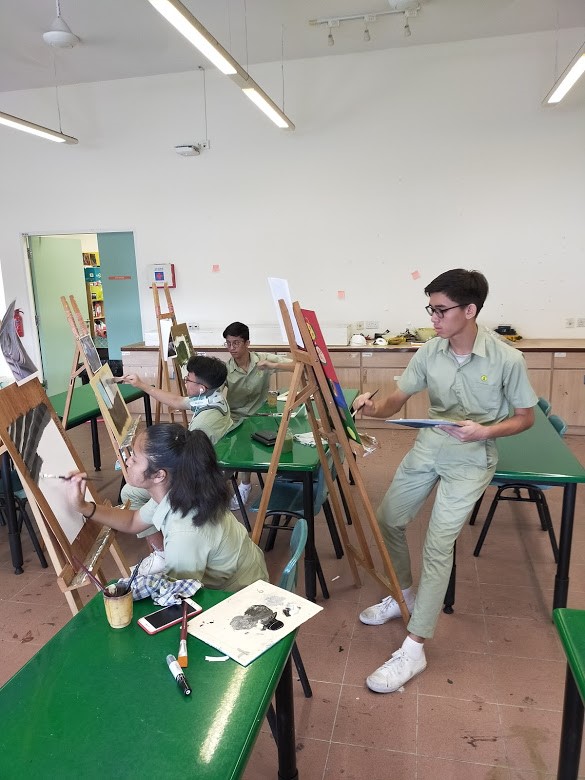
Highlights Photo Set H: Art student putting up his finishing touch on his final artwork (his installation master piece.)
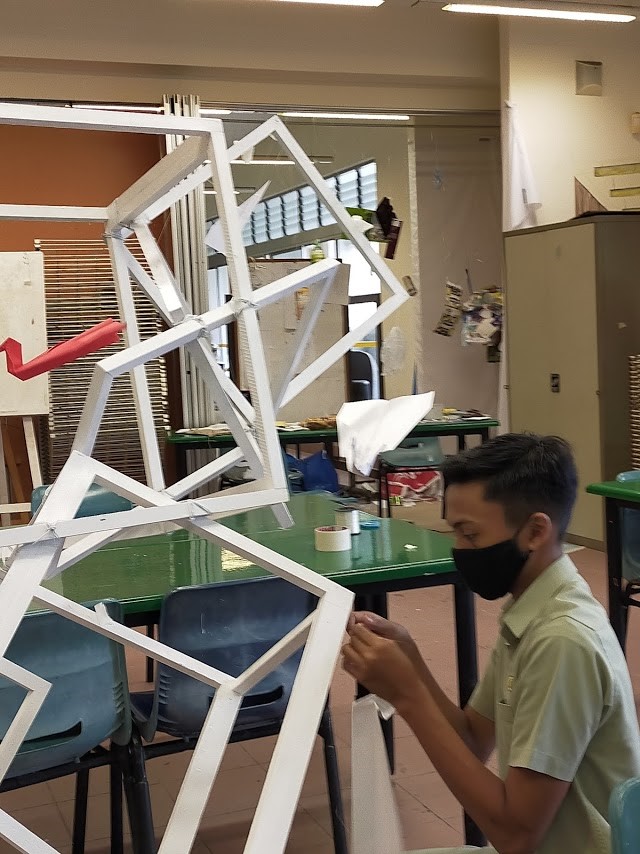
-
The Nutrition and Food Science (NFS) Unit adopts the MOE NFS Education Framework. The unit aims to empower students to be health-conscious and discerning consumers; enabling them to better manage their lives for the present and the future. The focus is on how individuals and families optimize their resources of food, finance and time to meet their physical, mental, social and economic needs.
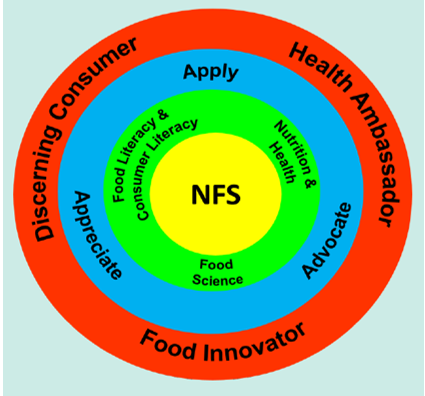
Source: MOE revised NFS syllabus
The unit adopts the inquiry-based pedagogical approach for the teaching and learning of Food Consumer Education (FCE) and Nutrition and Food Science (NFS).
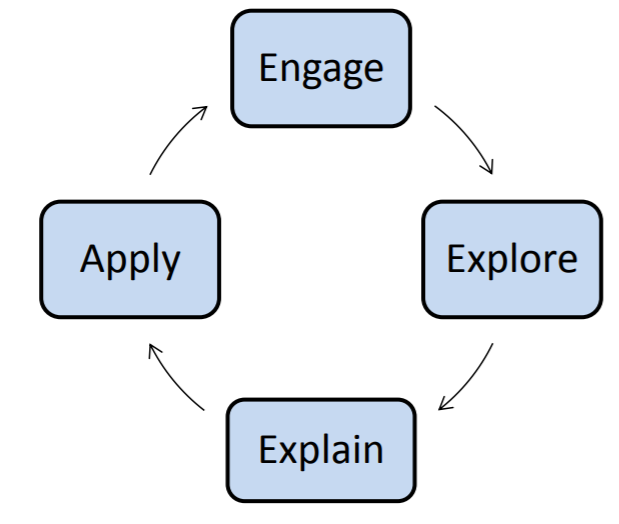
Source: MOE revised NFS syllabus
This approach focuses on providing students with an authentic problem context that allows students to relate and apply the knowledge gained in real-life situations, aligned with the development of 21st Century Competencies. The teaching of FCE and NFS is a cyclical process where students’ engagement with a question or topic leads to intellectual exploration. This eventually leads to an explanation of the feature or process in the question and further leads to the application of their ideas. This process develops the students’ understanding and involves them in their own learning.
This approach will lead to deeper acquisition of nutrition, meal-planning, principles of food science and understanding the link between diet and health. Students will also be equipped with the knowledge and skills to make informed decisions concerning food and nutrition.
Programmes to enhance learning experiences of students
Sustainable Environment - Organic Farming at PRSS Eco-garden
STEAM Carnival - Sandwich-making
Corteva Learning Journey - Learning and Discovering Science in Food through Experiment
Project Cupcake - Interdisciplinary project between FCE and Art
Sustainable Environment - Organic Farming at PRSS Eco-garden
Experiential Learning (ExL) in action
Learning journey to Bollywood Veggies (prior to Covid-19) to help students construct and retain knowledge better

Learning Journey to supermarket
During this period, virtual supermarket visit was mounted where students learn more about comparative shopping and analyzing nutritional claims on a food product.
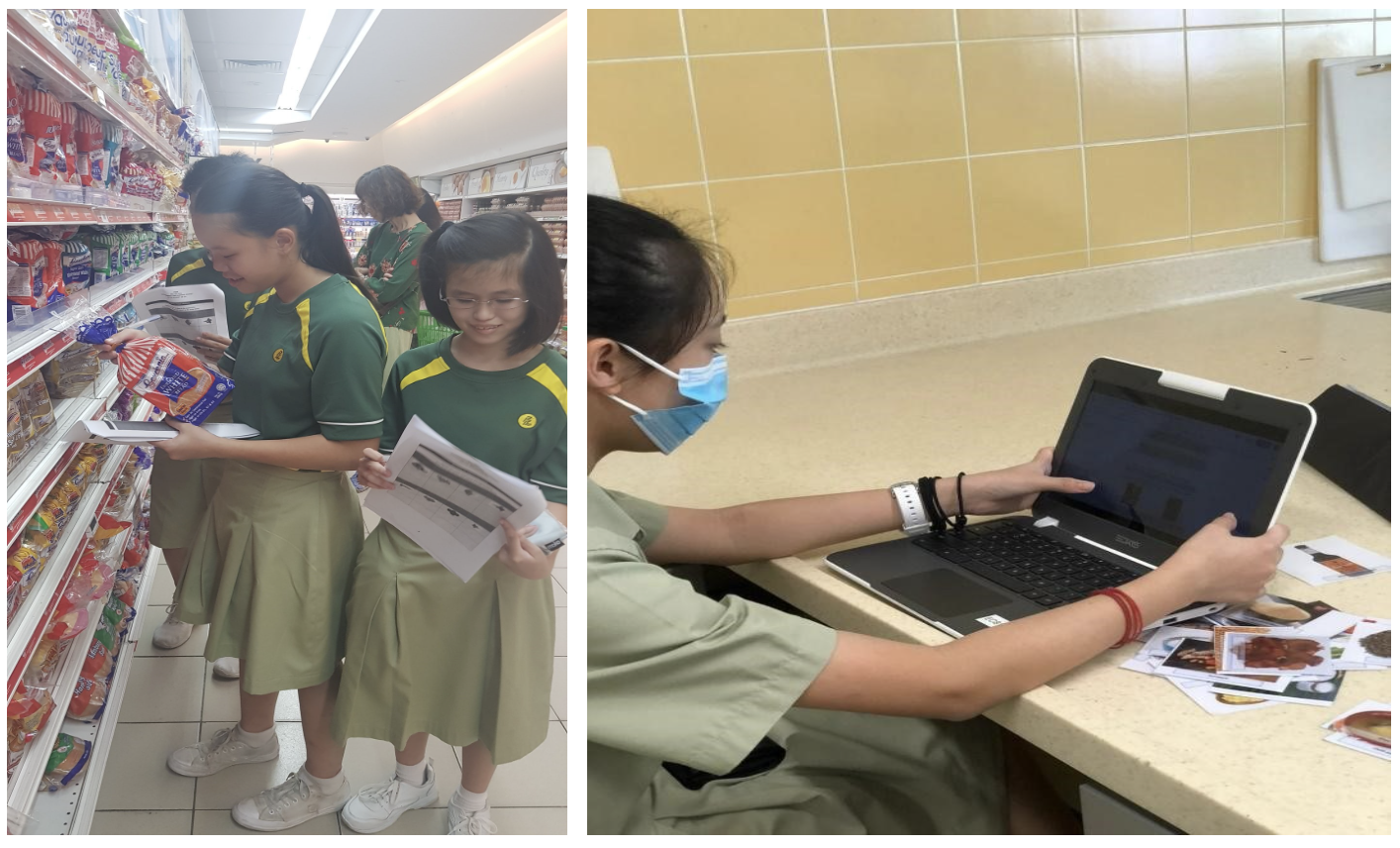
Urban farming in PRSS
The unit leverages on the revised NFS syllabus to incorporate urban farming as authentic learning experience to understand the importance of Food Security and Sustainability. This will also equip students with new STEM skills/knowledge so that they grow confident in exploring new career opportunities in “High Technology” Farming arenas.
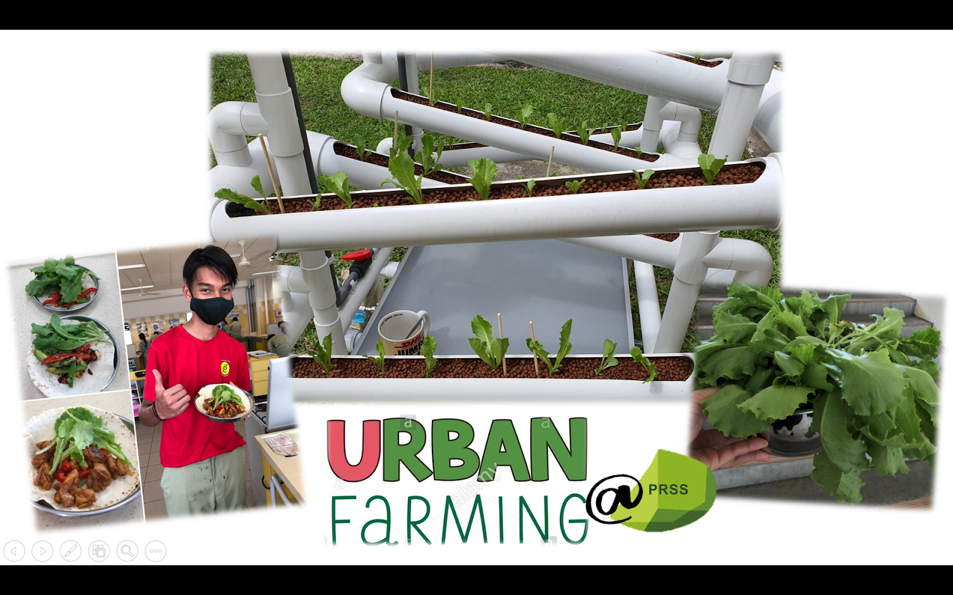
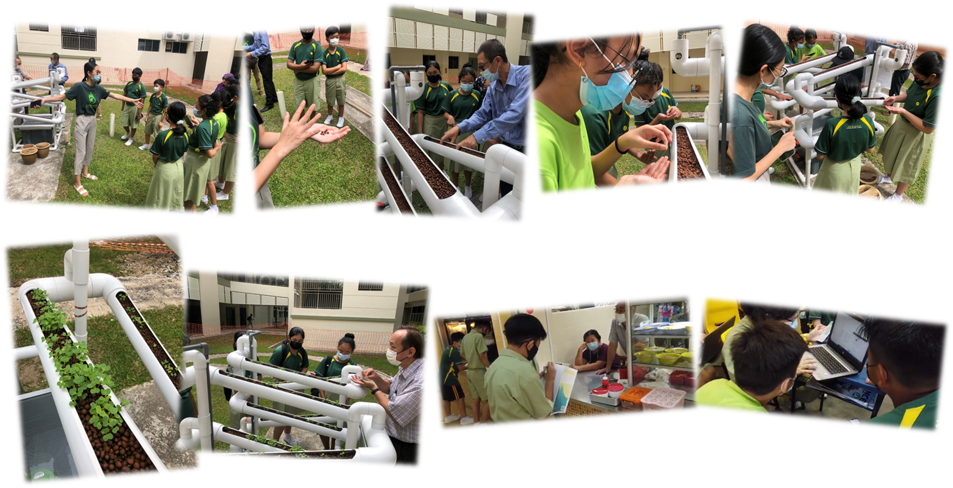
Inquiry-based learning (IBL) helps students learn better as they are involved in an authentic task. As part of their project Food Culture, students were tasked to identify herbs and spices by activating their sense of smell.
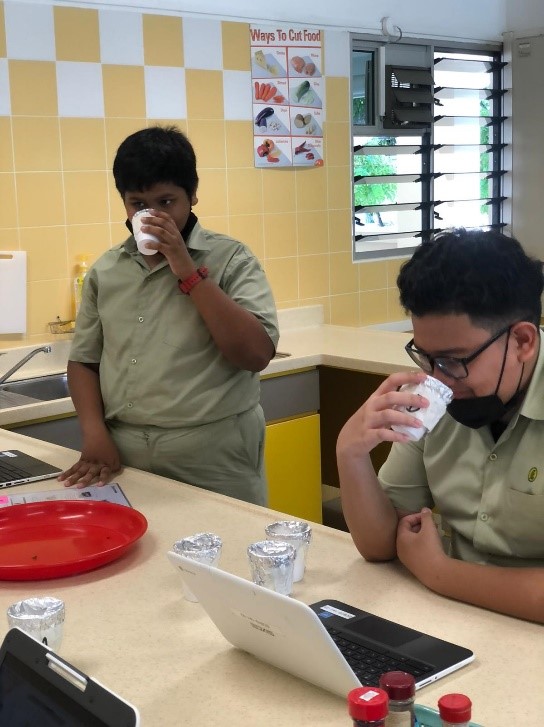
Culinary Workshop conducted by a professional Chef to enhance students’ skills in preparing food using new food trends and cooking technique
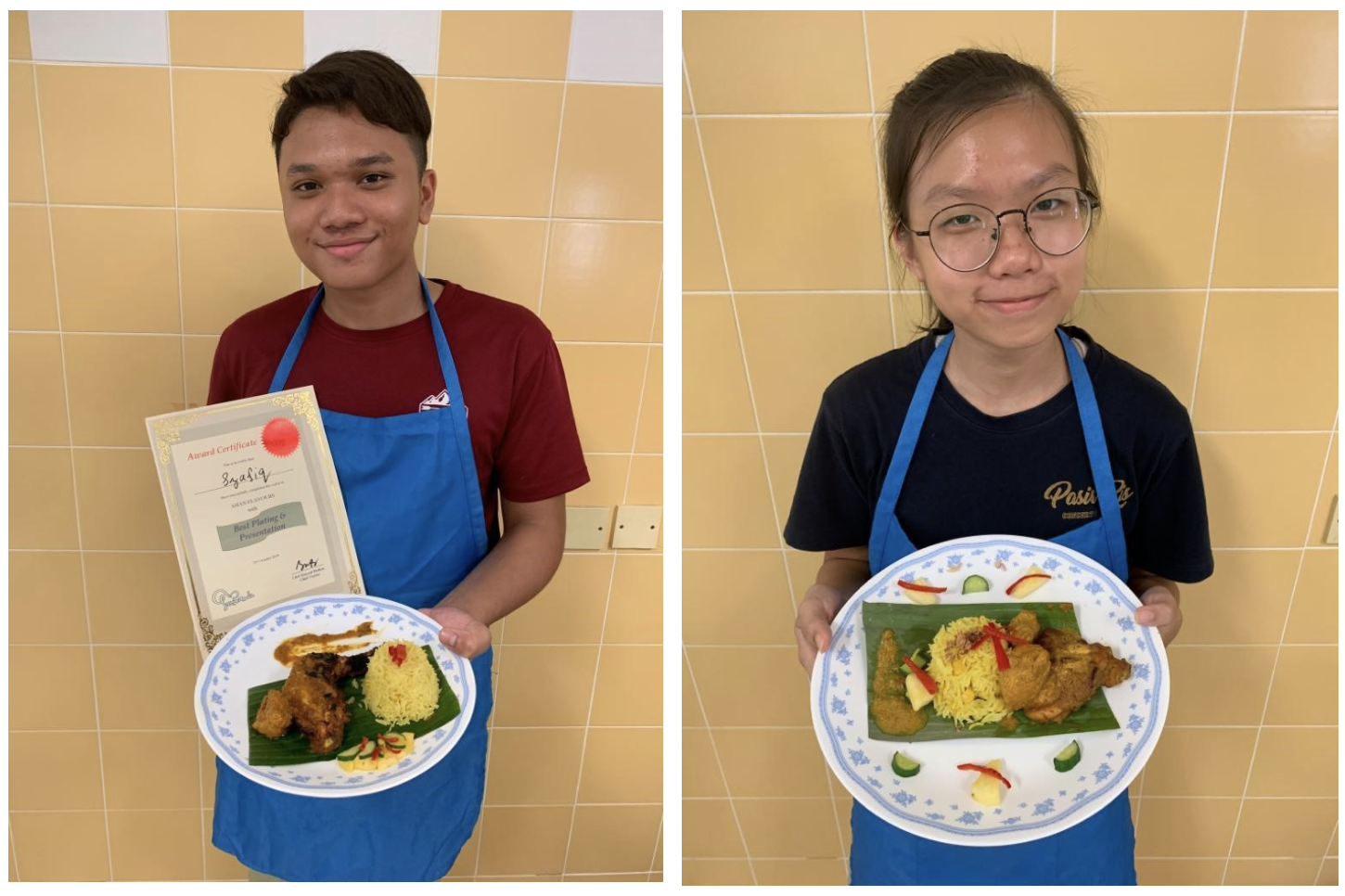
Tinkers’ Fest Craft the Cake challenge
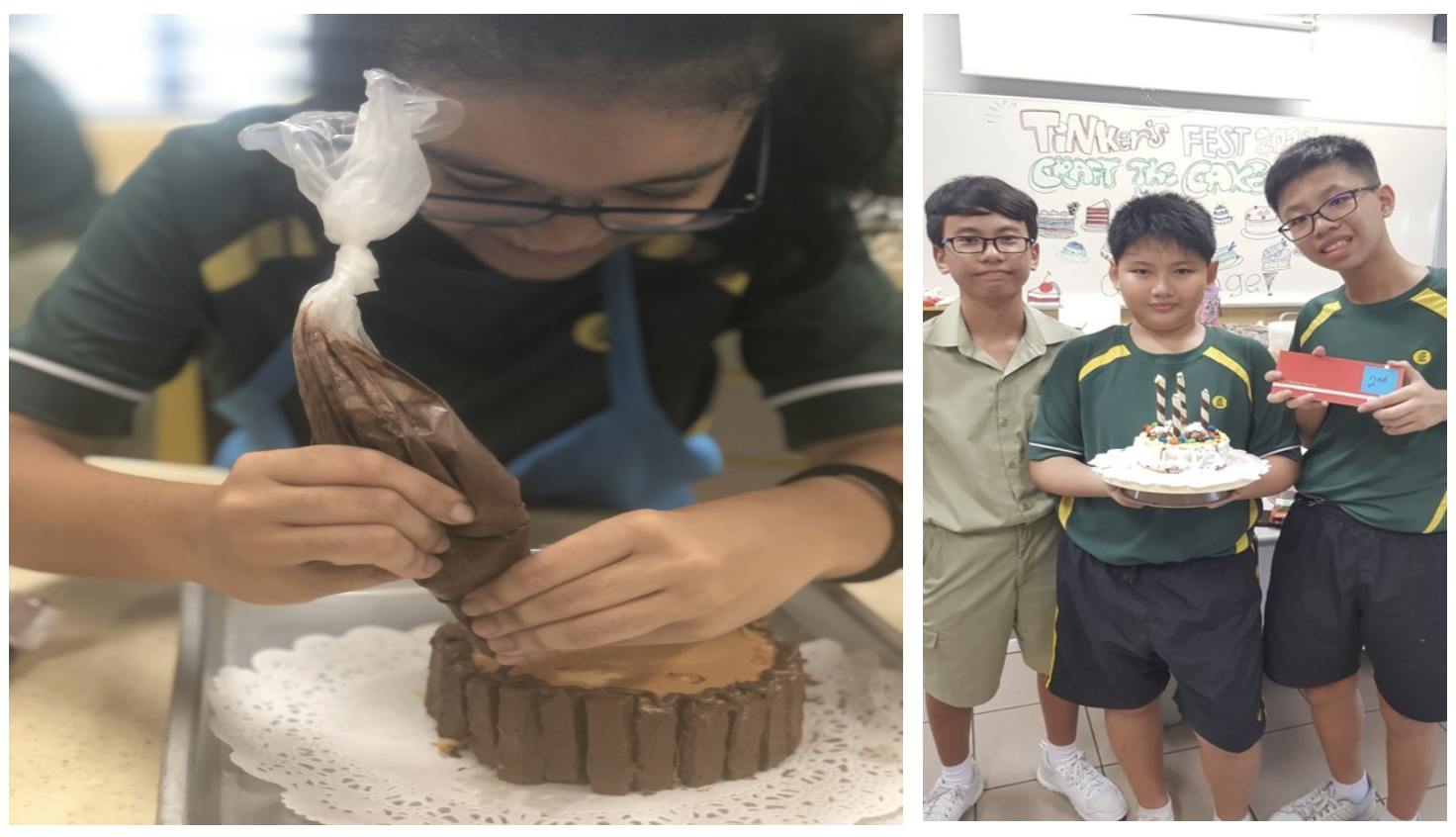
Enrichment workshop
Secondary 3 NFS students attended ‘Science in your Food’ workshop organised by Corteva agriscience. This workshop enhanced students’ interest in STEM and introduced agriscience’s role in our daily lives. Students prepared their own ice-cream using liquid nitrogen and lots of ice.
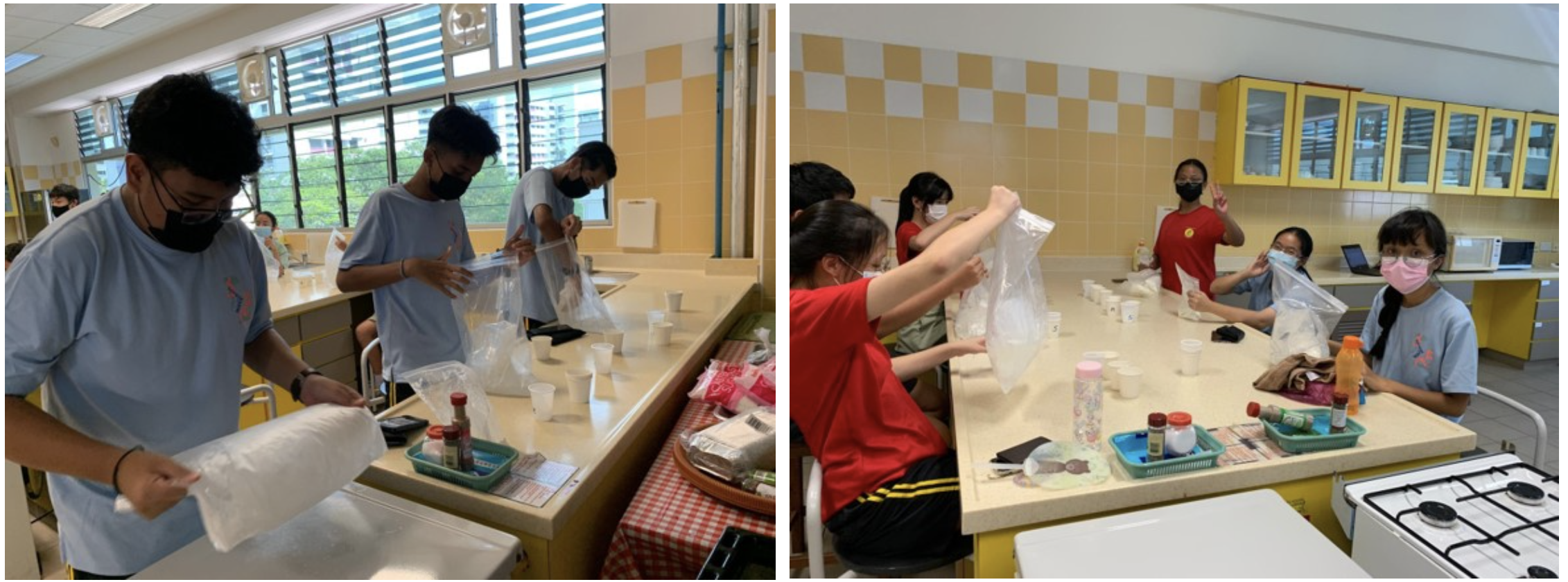
-
At PRSS, we believe that our students have the innate ability to express themselves musically. Through our exciting and comprehensive music programmes, we aim to develop them with musical and extra-musical skills such as critical thinking, psychomotor, social awareness, moral and cultural values. All of these skills and values will lead towards the holistic development of a child.
### Music Programmes @PRSS #### The Lower Secondary Music Syllabus 1.Secondary One (Express and Normal Academic)
For 1st semester, our students will experience our signature programme, the STOMP Project module. They learn to compose music and perform their creations to their peers and teachers. Students will showcase their composition during their class performance at the end of this module.
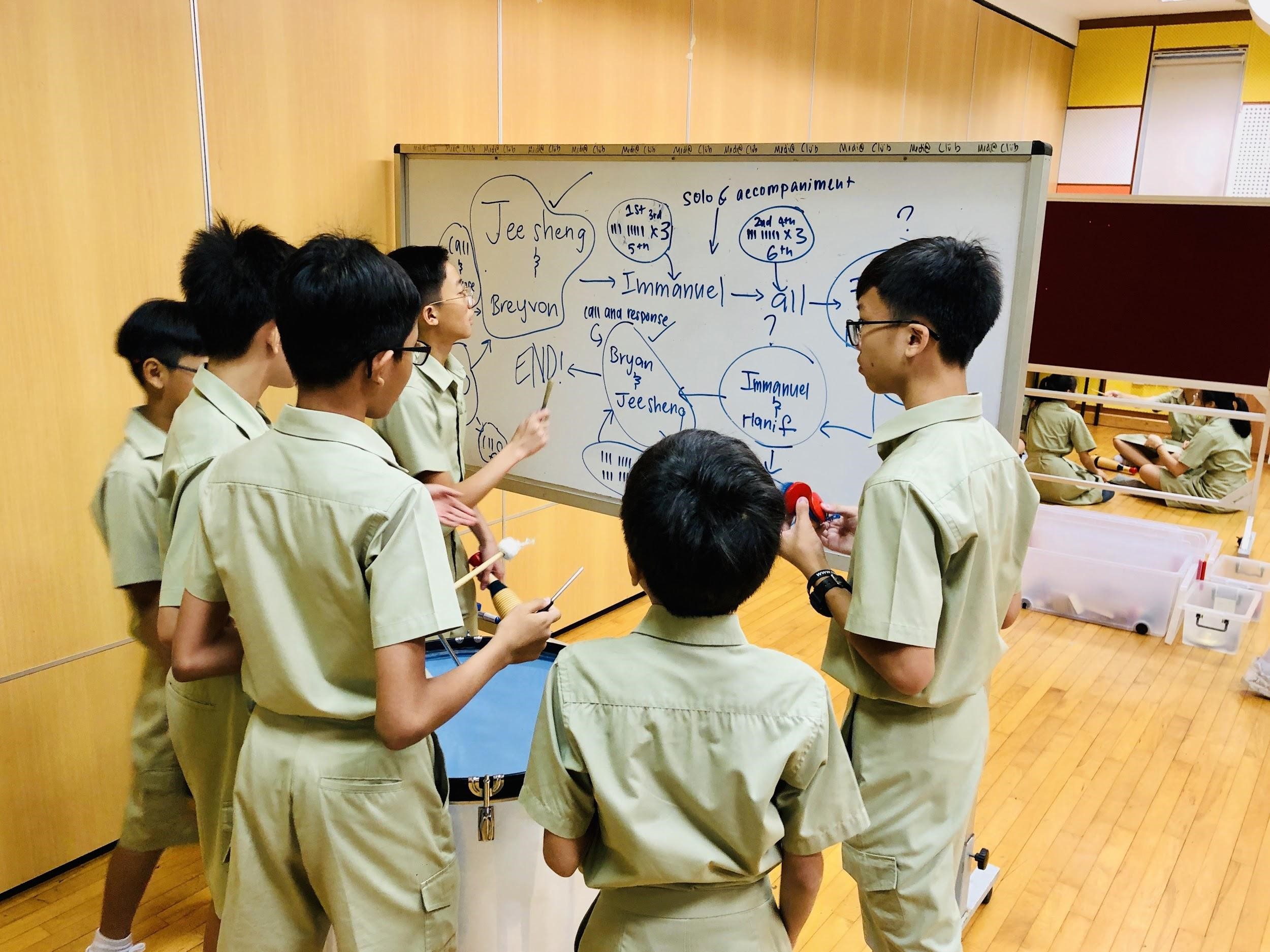
For 2nd semester, they will learn to read musical notations and perform familiar tunes on the boomwhackers. In this module, the classes will get to choose a song and perform during our school’s in-house lunch time concert before the end of this module.
2.Secondary Two (Express and Normal Academic)
For 1st semester, our students will learn to play familiar tunes on musical instruments (i.e., ukulele, keyboard, cajon) and collaborate with their peers to perform as a pop band.
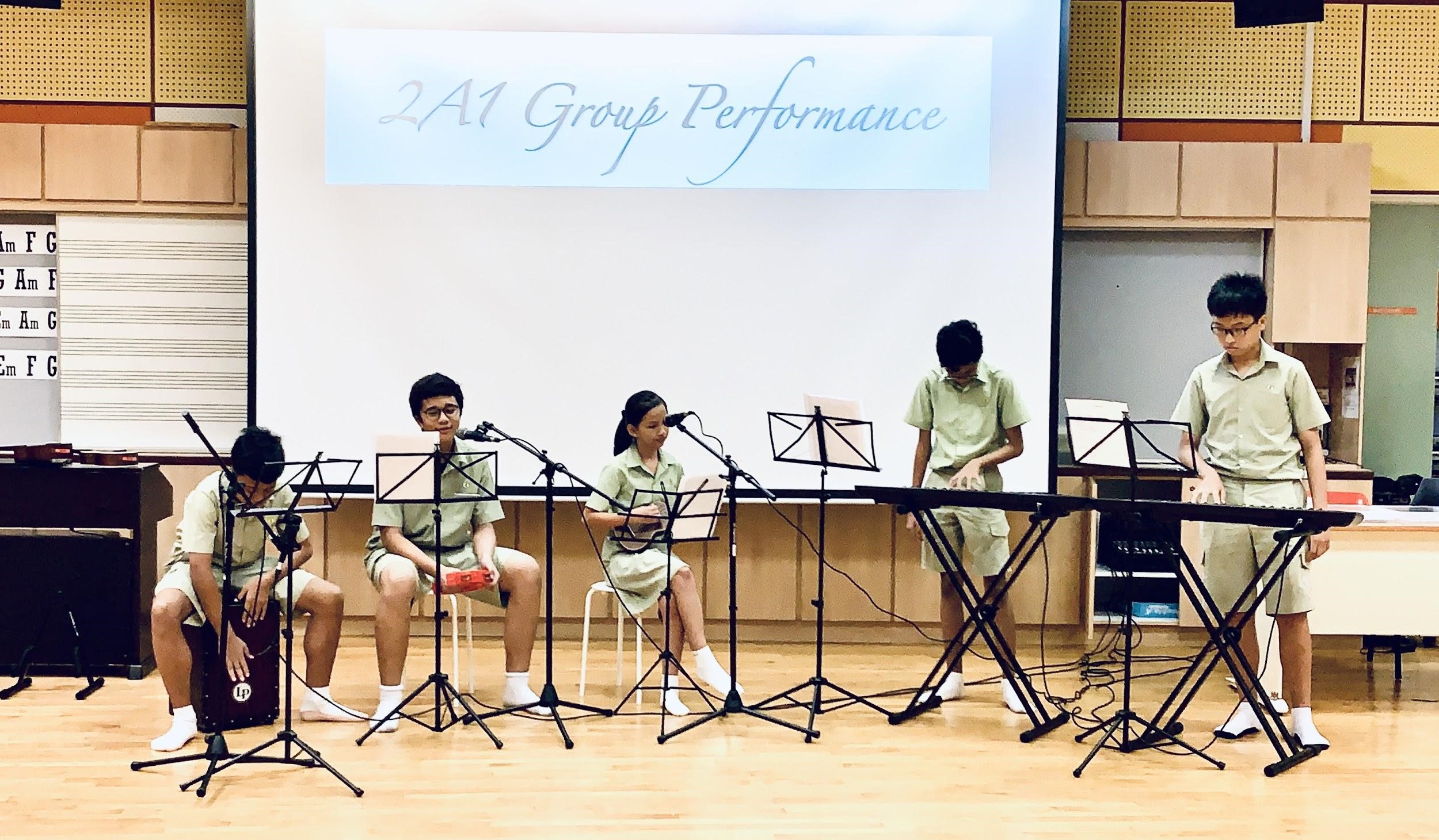
For 2nd semester, the students would have learnt the fundamentals of playing the instruments and basic structure of typical pop songs. Hence, it is timely to introduce our students to the Songwriting module. In this module, our students will learn to become better songwriters by understanding fundamentals in songwriting. They will have the opportunity to showcase their learning through an assessment of their playing before the end of 2nd semester.
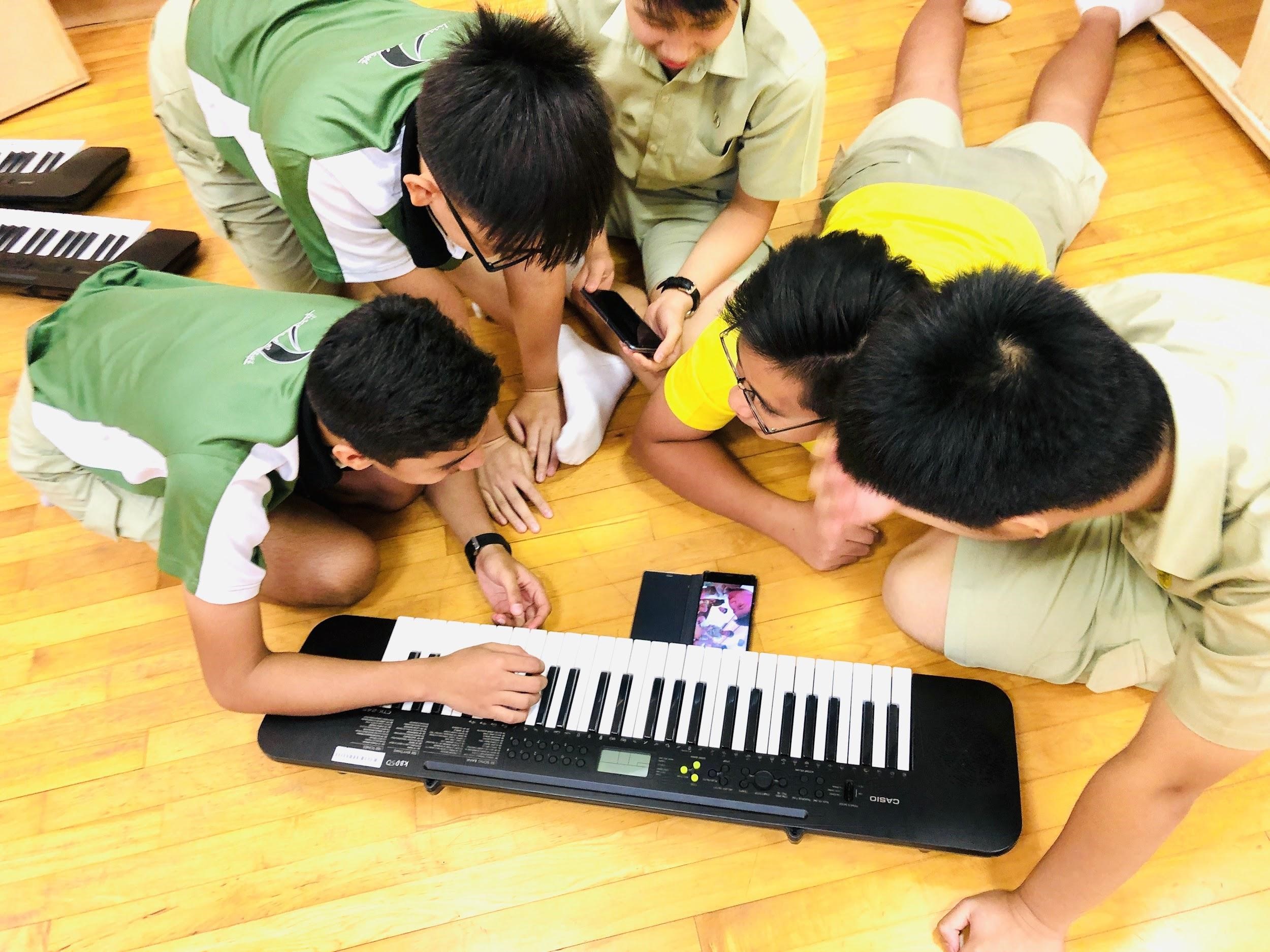 ### Uniquely N(T) Music @PRSS
### Uniquely N(T) Music @PRSS
Normal (Technical) Stream
The Music Programme for Normal (T) students is spread over 4 years, with the option for students to take up NT Music elective subject in Upper Secondary.
#### Secondary OneOur students will attend ukulele and keyboard lessons, where they learn basic playing skills through pop songs.
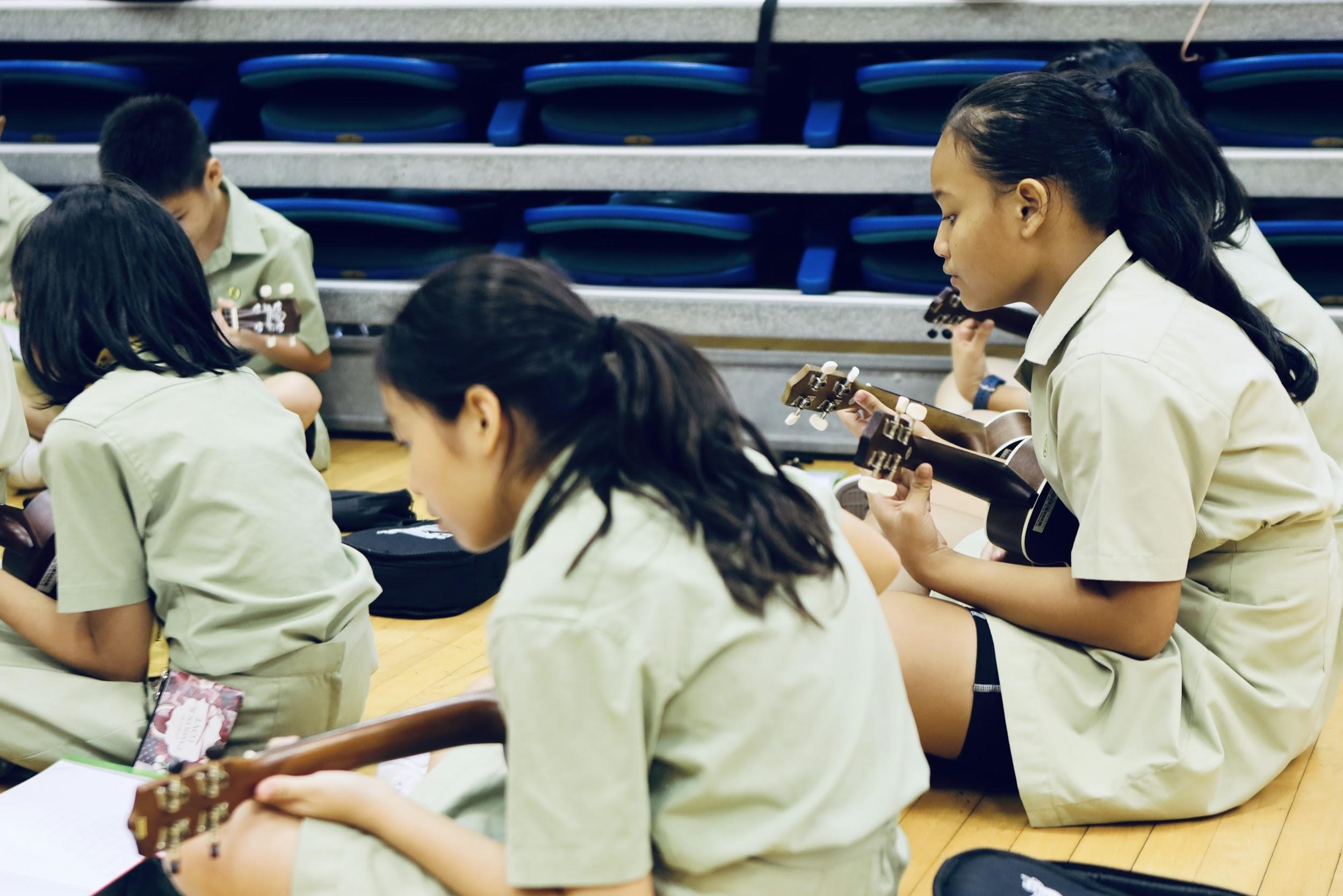 #### Secondary Two
#### Secondary Two
Our students continue to build on their instrumental skills as they work with acoustic as well virtual instruments on the GarageBand (available on Apple devices) to arrange and showcase their work in groups.
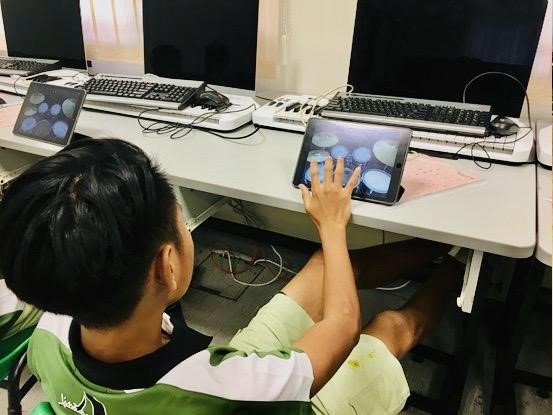 #### N(T) Level Music (Upper Secondary)
#### N(T) Level Music (Upper Secondary)
This subject is offered to our interested 3NT students as their elective subject during the Secondary Two streaming exercise. The programme allow students to deepen their skills in reading, analyzing and reproducing music of different forms, and more importantly, to become active listeners who can readily interact with music of different genres. Where possible, these students will be provided opportunities to showcase their musical creation and improvisation via both physically (Lunchtime concert) or digitally (via youtube).
### Highlights #### Lunchtime Concert - MUSEIT: Season Three, Episode 2Featuring our Secondary One Lower Secondary Music Syllabus and N(T) music students.
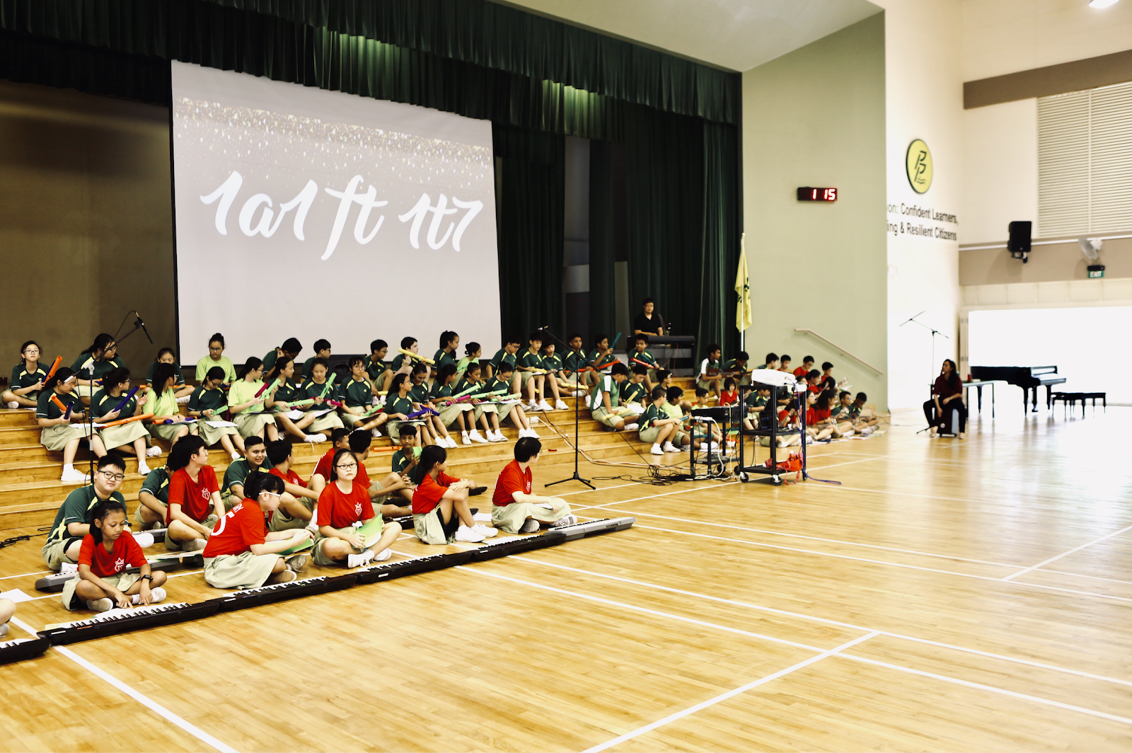
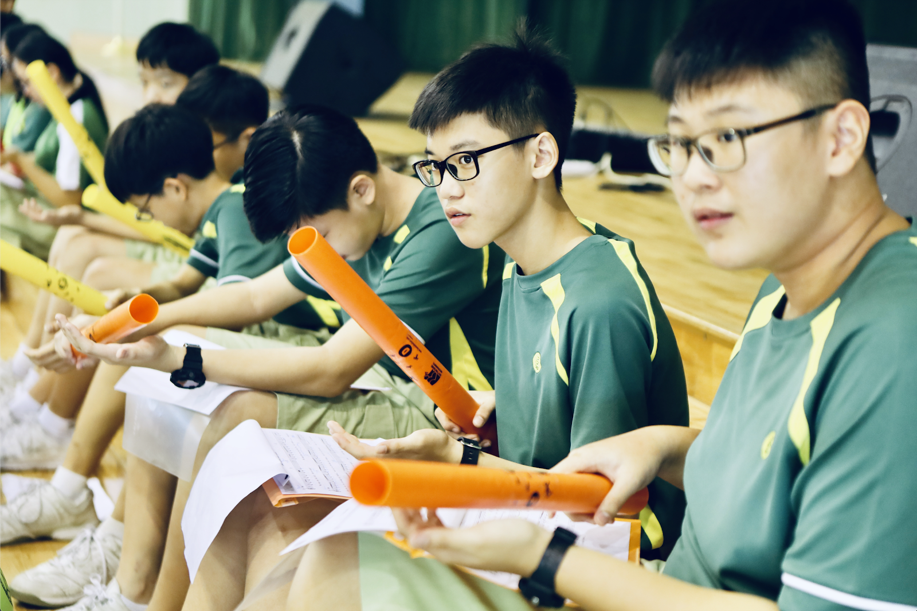
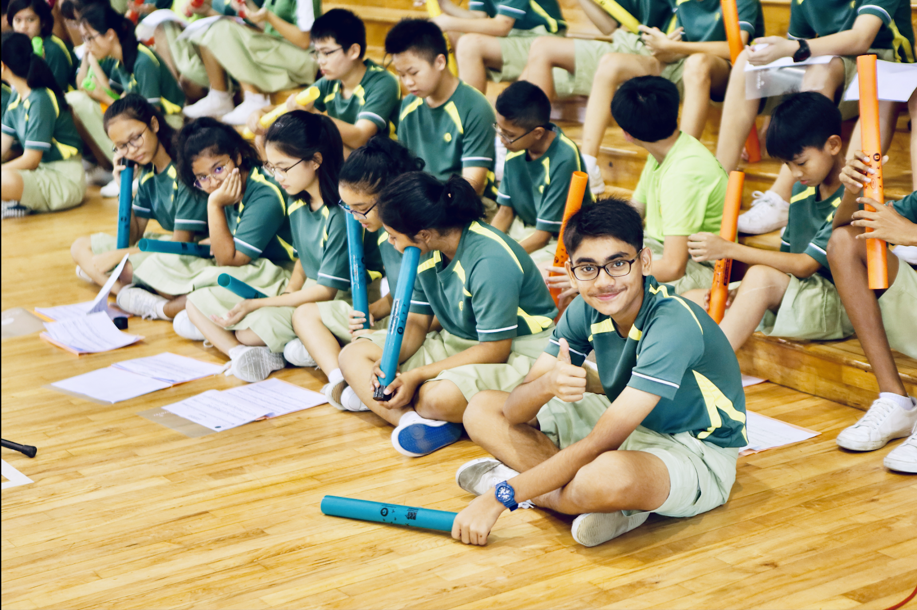
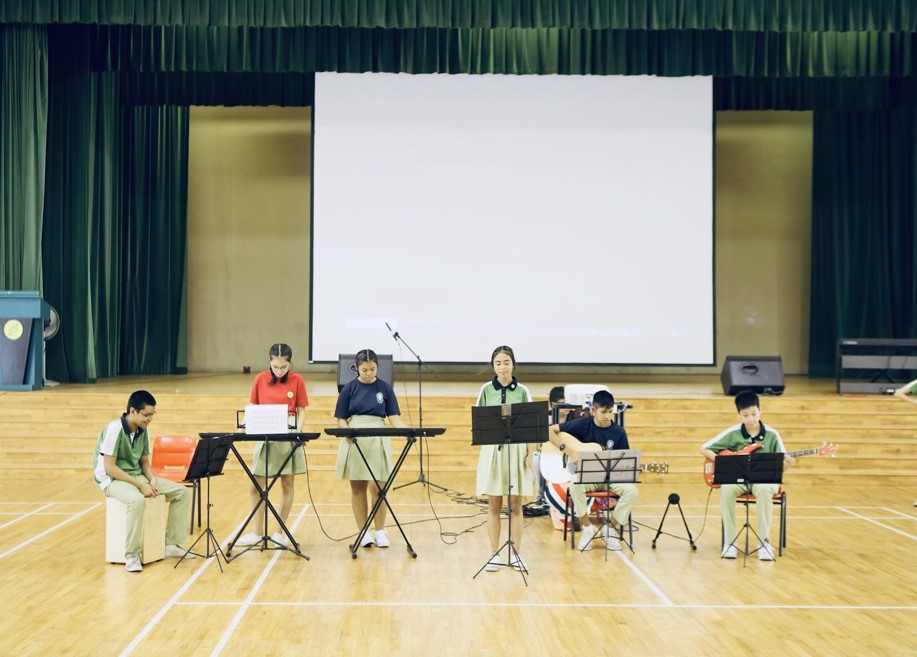
Singapore Youth Festival: Celebrations in the City @ Kampung Admiralty
Our pop band (students from Secondary Three N(T) level music class) performed with Mr Dick Yip and his Minstrels at Kampung Admiralty for Singapore Youth Festival: Celebrations in the City.
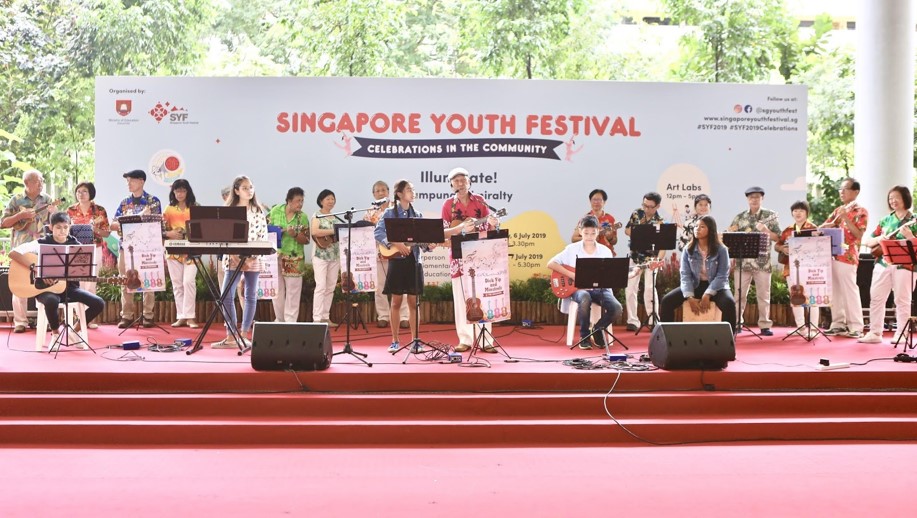
Singapore Youth Festival: Celebrations in the City @ Esplanade Concourse
Collaboration with “The Acapella Group” from ITE College Central.
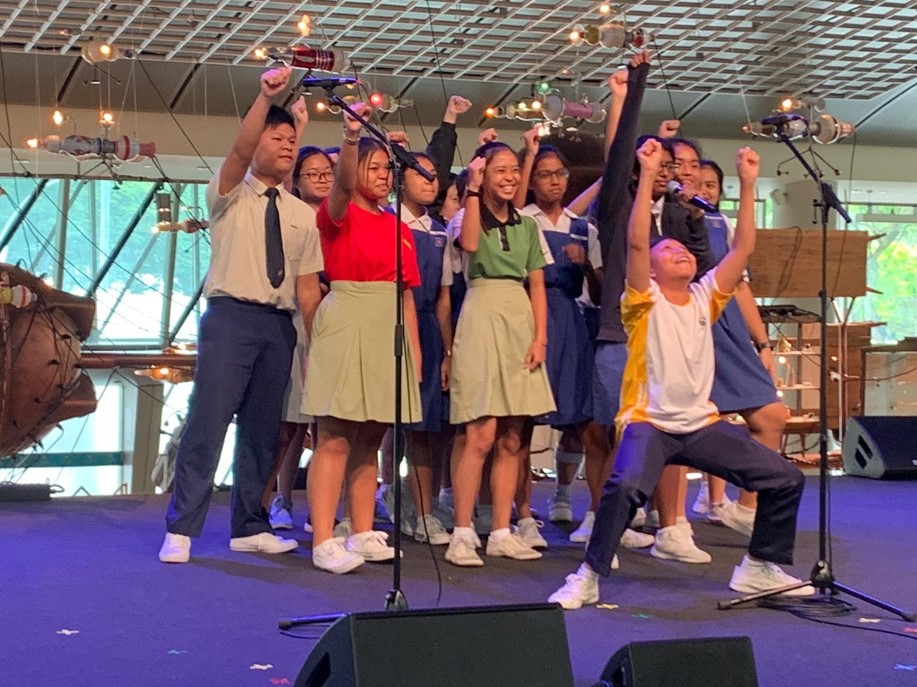
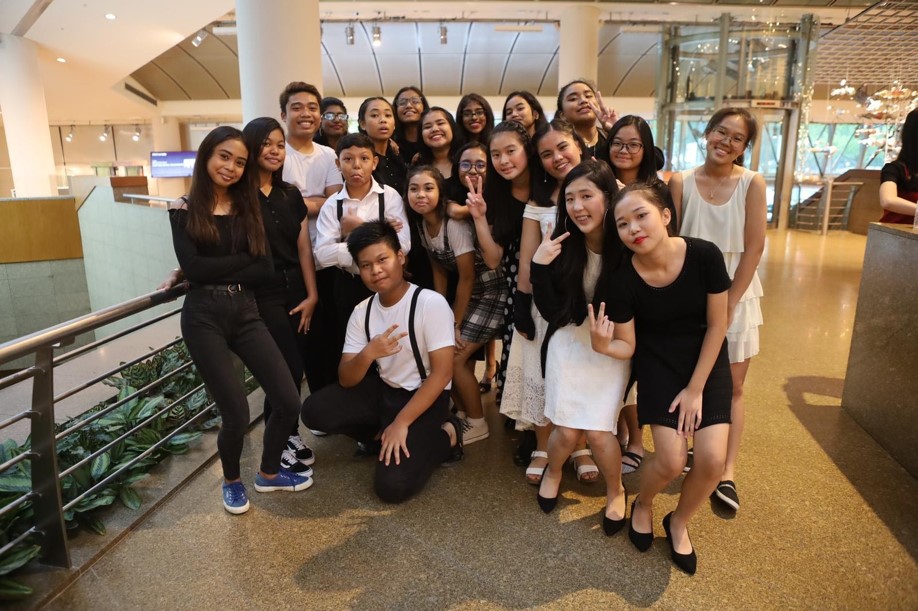
PRSS pop band was featured on Lian He Zao Bao Article!
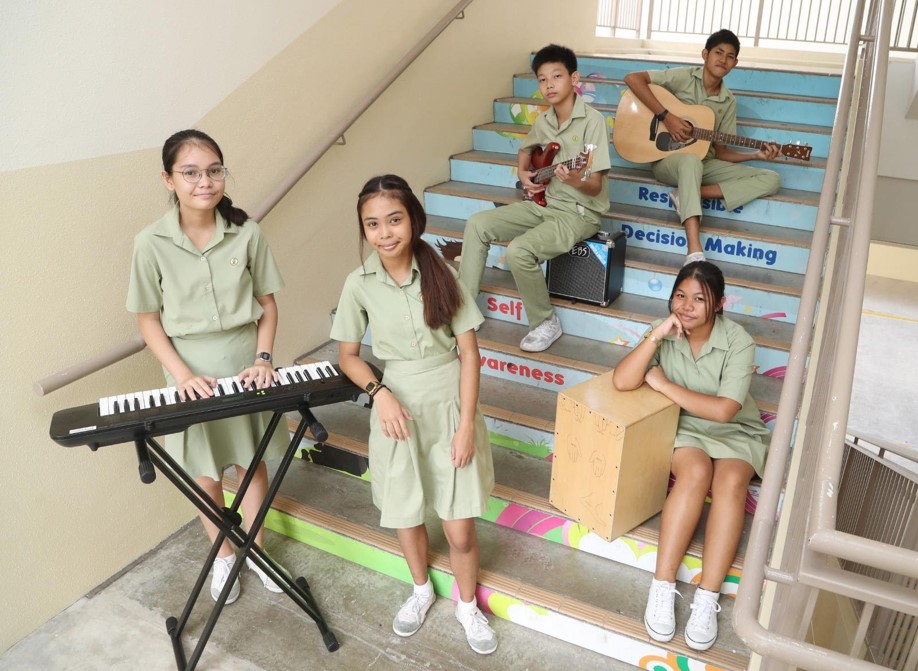
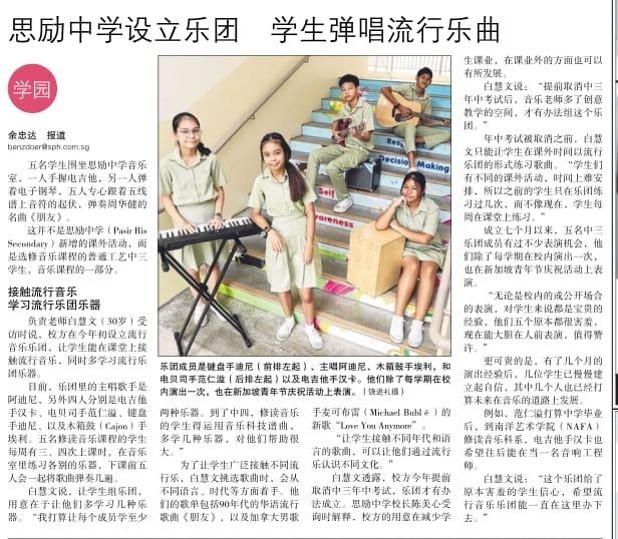
People
| Subject(s) Taught | Name | E-mail Address |
|---|---|---|
| Design & Technology | Mr Koh Chun Kiat SH EdTech |
koh_chun_kiat@moe.edu.sg |
| Design & Technology | Mr Teo Yu Wen Wilfred | teo_yu_wen_wilfred@moe.edu.sg |
| Design & Technology | Mr Eric Koh Kai Hwee | koh_kai_hwee@moe.edu.sg |
| Design & Technology | Mr Jonathan Ng Tian Loong | ng_tian_loong_jonathan@moe.edu.sg |
| Food and Consumer Education / Food and Nutrition |
Mdm Siti Mirna bte Mustapah | siti_mirna@moe.edu.sg |
| Food and Consumer Education / Food and Nutrition |
Mdm Nur Nadiah Adanan | nur_nadiah_adanan@moe.edu.sg |
| Art | Mr Noor Rahman Bin Saini | noor_rahman_saini@moe.edu.sg |
| Art | Ms Siti Sarah Binte Mamat | siti_sarah_mamat@moe.edu.sg |
| Art | Mr Kimberlyn Lee | kimberlyn_lee@moe.edu.sg |
| Music | Ms Fam Hui Yuen | fam_hui_yuen@moe.edu.sg |
| Music | Mr Ong Ting Kai | ong_ting_kai@moe.edu.sg |
| STEM Instructor | Mr Mohd Ali bin Yunos | mohamed_ali_yunos@moe.edu.sg |
| STEM Instructor | Mohammed Fazley Alias | mohammed_fazley_bin_alias@moe.edu.sg |
Photos
